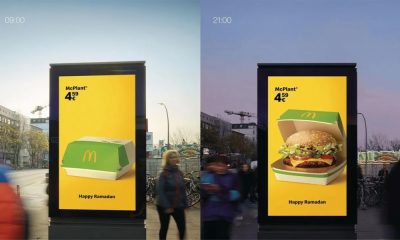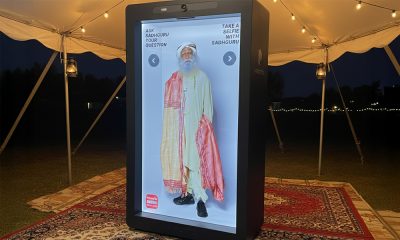Insights
“Personalisation is the key to relevance”
Ashish Limaye, CEO, Craving Digital highlights how technology is revolutionizing brand storytelling by enabling agility, personalization, and immersive experiences.

As technology continues to advance, the way brands tell their stories is undergoing a remarkable transformation. No longer confined to traditional formats, storytelling today is dynamic, interactive, and deeply personalized. According to Ashish Limaye, CEO of Craving Digital, these changes are not just an evolution but a necessity in an age where consumers demand creativity and authenticity.
“Humans are constantly evolving, and technology has accelerated this process,” Ashish notes. “Consumers now have an insatiable appetite for content that resonates on a deeper emotional level. Brands need to step up by integrating creativity with cutting-edge technology.”
The evolution of storytelling
In the past, storytelling relied heavily on film, long production cycles, and linear narratives. However, in today’s competitive digital landscape, the need for agility is paramount. Products are expected to generate interest and even sales before they hit shelves. To meet these demands, brands are turning to technologies like virtual production, 3D pipelines, and design-to-marketing workflows.
Ashish observes, “Brands can no longer afford the luxury of time-intensive methods. Virtual content creation, for instance, has eliminated the need for traditional photography and lengthy production schedules, enabling marketers to adapt faster.”
Immersive experiences with AR, VR, and MR
Augmented reality (AR), virtual reality (VR), and mixed reality (MR) are enabling brands to immerse their audiences in sensory-rich environments. From virtual showrooms to interactive experiences, these technologies create deeper emotional connections.
For example, furniture brands use AR to let customers visualize how pieces will look in their homes. Meanwhile, VR takes users on transportive journeys, enhancing brand storytelling with unparalleled engagement.
Personalization through artificial intelligence
Artificial intelligence (AI) is revolutionizing how brands tailor their messages. By analyzing user data, AI enables the creation of highly personalized narratives that align with individual preferences and behaviors.
“Personalisation is the key to relevance,” Ashish points out. “AI not only allows brands to deliver customized stories but also enhances engagement by ensuring that every interaction feels meaningful.”
AI-powered chatbots are another example, offering real-time conversational storytelling that guides customers through brand experiences seamlessly.
Data-driven insights for better storytelling
Big data and analytics are powerful tools for understanding audience preferences, behaviors, and consumption patterns. By leveraging these insights, brands can craft stories that resonate on a deeper level.
-

 Campaigns
CampaignsMcDonald’s Germany’s thoughtful DOOH campaign for Ramadan
-

 Tenders
TendersUPMRC invites bids for advertising rights across 15 Kanpur metro stations
-

 Campaigns
CampaignsInteractive AI hologram takes a spiritual avatar
-

 Tenders
TendersSignpost India bags exclusive advertising rights for “Kolkata Streetscape Renaissance” project




















